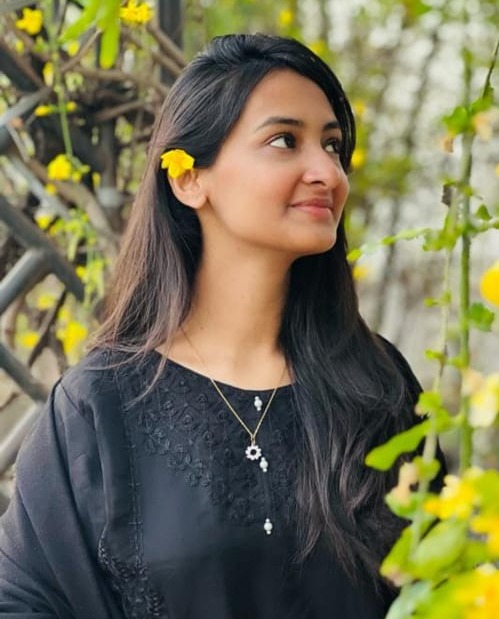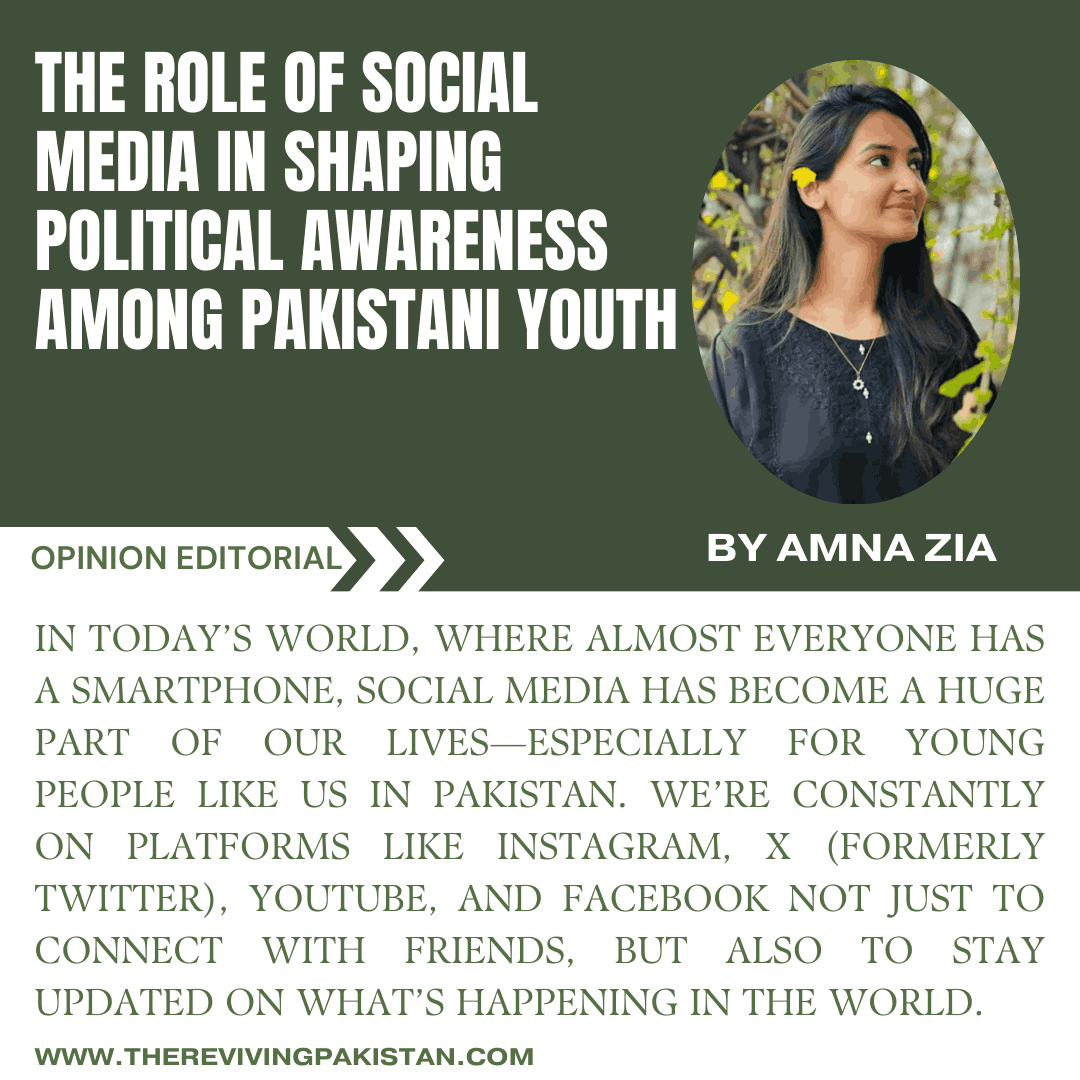About the Author(s)

Amna Zia
Author is pursuing Bachelor’s in International Relations at Bahria University, Islamabad. Passionate about politics and diplomacy, she use writing to share my perspectives on Pakistan’s future and engage in key discussions.
Introduction.
In today’s world, where almost everyone has a smartphone, social media has become a huge part of our lives—especially for young people like us in Pakistan. We’re constantly on platforms like Instagram, X (formerly Twitter), YouTube, and Facebook not just to connect with friends, but also to stay updated on what’s happening in the world. Social media is more than just fun; it’s now a major way we learn about politics and form our opinions. But is it always good? Let’s dive into how social media is shaping political awareness among Pakistani youth.
From TV News to Twitter Feeds: How We Get Our News Today.
Gone are the days when our parents would gather around the TV to catch the evening news. Now, for most of us, the news is just a scroll away on our phones. Whether it’s keeping up with a politician’s latest tweet or watching a live stream of a protest right as it happens, everything is literally at our fingertips. Remember when Imran Khan used to address the nation live on social media? Moments like that make us feel connected and involved, almost like we’re a part of the conversation. Social media isn’t just about watching from the sidelines anymore—it lets us jump right into political discussions and see what’s happening in real-time.
Voicing Our Opinions: How Social Media Empowers Us.
It’s not just about following the news; it’s about jumping in and making our voices heard. On X (formerly Twitter), for example, we’re not just spectators—we’re part of the conversation. When something major happens, like the recent Karsaz incident, hashtags like #KarsazAttack and #JusticeForVictims start trending. These aren’t just random words online—they’re powerful movements that grab the nation’s attention and force people to talk about issues that really matter. Social media has truly changed the game by giving us, the youth, a real voice in politics, where we can actively participate and push for change.
Politics Made Personal: Relatable Content and Youth Engagement.
One of the coolest things about social media is how it makes politics feel like it’s actually for us. Unlike TV news, which can be super boring and sometimes only shows one side of the story, social media is full of content that’s made for our age group. Whether it’s funny memes, quick videos, or posts about real issues, it’s all stuff we can relate to. It’s so easy to share and talk about these things with our friends, which means we’re way more likely to get involved in political discussions—and maybe even take action, like organizing online campaigns or showing up at protests.
Diverse Voices in a Digital World: Broadening Political Discussions.
Social media is also a platform where people from different backgrounds can speak up. In Pakistan, not everyone gets a voice in the mainstream media, but on social media, anyone can share their experiences and opinions. This makes our political discussions more diverse and inclusive, which is super important for a healthy democracy.
The Dark Side: Misinformation and Echo Chambers.
But it’s not all good. One big problem with social media is how quickly fake news spreads. It’s so easy to come across posts that look legit but are actually completely false. During election season, for example, there’s often a ton of misinformation about candidates. This can really confuse people and mess up the whole democratic process. As young people, we’ve got to be careful about what we believe and share online.
Another issue is the whole “echo chamber” thing. Basically, social media tends to show us stuff we already agree with, so we end up only seeing one side of things. This can make people really set in their beliefs and less open to hearing different perspectives. For those of us still figuring out what we believe politically, this isn’t great because it stops us from seeing the bigger picture and understanding other viewpoints.
Navigating the Digital Landscape: Staying Informed and Open-Minded.
Social media is definitely a powerful tool for staying politically aware, but we’ve got to use it smartly. It’s super important to know how to spot fake news and make sure we’re getting our info from trustworthy sources. Plus, it’s really helpful to check out different viewpoints, even if we don’t totally agree with them, so our discussions are more balanced and open-minded.
Conclusion: Making the Most of Social Media for Political Engagement.
Social media has totally changed the way we, the youth of Pakistan, engage with politics. It gives us a voice and keeps us in the loop, but it also brings challenges like misinformation and echo chambers. If we’re careful with how we use it, social media can be an awesome way to make our voices heard and help build a better, more inclusive Pakistan. Let’s make sure we’re using this tool for the right reasons!

